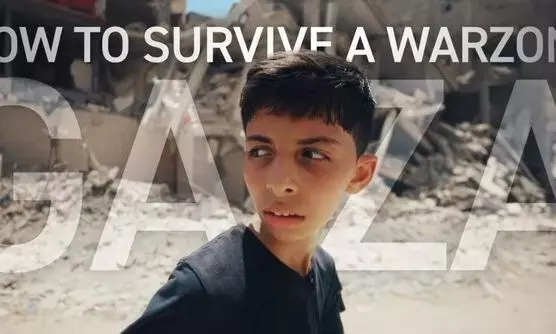
BBC calls Gaza film on Palestinian suffering inaccurate over narrator’s Hamas link
text_fieldsA BBC review has found that its documentary Gaza: How To Survive A Warzone breached editorial guidelines on accuracy by failing to disclose that its 13-year-old narrator was the son of a Hamas official, raising questions about the portrayal of Palestinian suffering even when the documented ground realities remain unchanged.
The documentary, which portrayed the daily struggles of children in war-ravaged Gaza, was removed from the BBC’s streaming service in February after it was revealed that the narrator, Abdullah, was the son of Ayman Alyazouri, a Hamas member who served as the deputy minister of agriculture.
The report, led by the BBC’s Director of Editorial Complaints and Reviews, concluded that the omission amounted to a serious lapse in transparency, suggesting that the failure to disclose this information could give the impression of partiality, even if the experiences shown in the documentary were not exaggerated or fabricated.
It highlighted that the documentary, while authentic in its depiction of life under bombardment, lost credibility by failing to inform viewers about a potential conflict of interest in its narration.
The review found that the production company, Hoyo Films, bore the bulk of the responsibility for the lapse, although the failure was described as unintentional. Despite this, the BBC accepted that its own editorial checks had not been rigorous enough and committed to implementing measures to prevent similar errors in future productions.
The findings have raised broader concerns about how the personal backgrounds of contributors can influence the perceived neutrality of documentary content, particularly in politically sensitive conflicts.
While the documentary did not contain evidence of third-party influence or misuse of funds, and its portrayal of Palestinian suffering reflected the ground reality, the omission of the narrator’s familial link to Hamas was ruled to have materially misled the audience.
Britain’s media regulator Ofcom announced a separate investigation into the incident, as the BBC reaffirmed its commitment to editorial impartiality.












